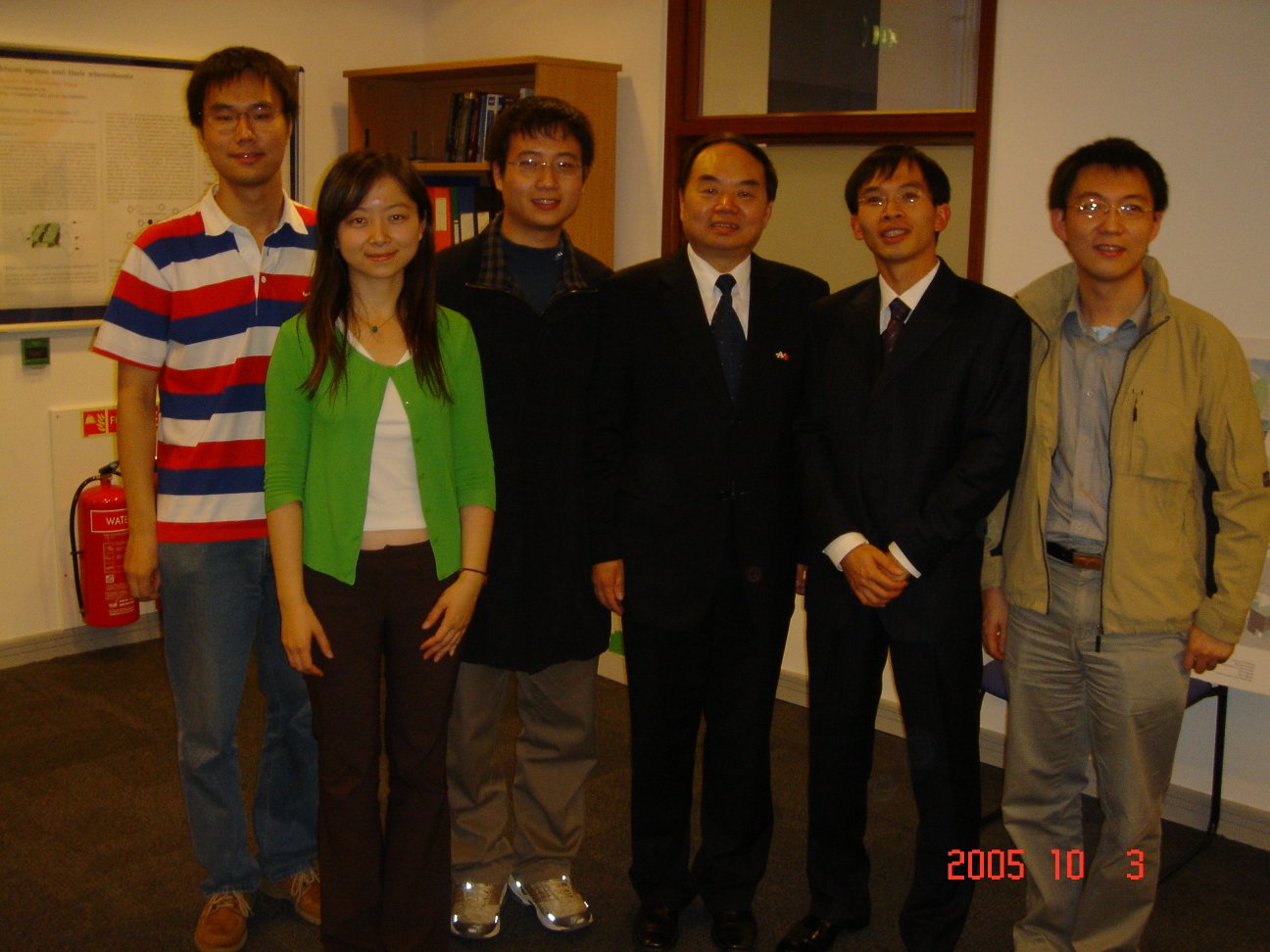School
of Informatics
at
the University of Edinburgh
 |
| The
new building for Informatics |

|
The
location of Edinburgh
|
The School of Informatics
at the
University of Edinburgh is a world-class
research institute. The school was formed by combining the previous
Departments of Artificial Intelligence, Computer
Science, and Cognitive Science. These three
disciplines
are seamlessly integrated in the school and are given a general
designation "Informatics".
The school is well known for its research
in the
areas of programming languages,
algorithms, theoretical computer science, artificial intelligence,
natural language processing, databases, etc. It is one of the first
institutes that conducts research and teaching in
artificial intelligence. SML, a functional
programming language, and Prolog, a logic programming
language, were also developed in
the School. Edinburgh came top for Computing Science and Informatics in the UK in the last two RAEs, 2001 and 2008 (click
here for details),
above the computer
science departments at Cambridge, Oxford and Imperial College, etc.
The School has been blessed by recipients of Turing Award
(computer-science equivalent of Nobel Prize) and Godel Prize, etc, and
currently has on its faculty fellows of Royal Academy as well
as ACM/IEEE
fellows. Although there are no published international comparisons of
computer science departments, Edinburgh is generally regarded as one of
the best departments in the world. (click
here for details)
The University of
Edinburgh was founded in 1583,

|
| Old
College, one of the early constructions in Edinburgh University |
and has been being a world-renowned university since then. In
her 400+
years history emerged a large array
of
world-class scientists, philosophers, writers, etc. Among them
are philosopher
David Hume,
historian William Robertson, and thinkers Adam, who led the
"Scottish Enlightenment" that has become the basis of moral
philosophy;

|
Edinburgh
from Calton Hill
|
Charles Darwin, who proposed the theory of
evolution; James Clerk Maxwell, the
founder of
electromagnetism
theory; Alexander Graham Bell who invented telephone; James
Hutton, the father of modern geology; Sir Walter Scott,
a famous
poet; and Sir
Arthur Conan
Doyle, who is known for his
detective stories. Their
contributions
have gone way beyond the United Kingdom and benefited the whole world.
The
School of Information Science in Edinburgh University has PhD
(three-year) and Master (one-year) programme (click here for
details, including application
forms).

|
| Some
Chinese students of the school are educating Prince
Philip |
The
School encourages outstanding
Chinese students to study in the school. Graduates
from the school have often been employed as professors at top-ranked
universities in the United States, United Kingdom and Europe, or work
at world-class research institutes.

|
| A
group of Chinese students, together with the Minister of
Education, China |
Chinese alumni include, for example,
Peisu Xia (the pioneer of computer science in China), the
president of Beijing
University of Aeronautics and Astronautics, the director of the
software institute of the Chinese
Academy of Sciences, as well as a number of academicians of the Chinese
Academy of Sciences. The school provides full scholarships for
outstanding PhD students, and many
professors may support their students from their own research grants (click
here for details). China's Ministry of Education also
encourages Chinese students to study in Edinburgh and offers
scholarships (
click here for details). In addition, the students usually
have no difficulties in getting a visa to study in Edinburgh. A recent
policy introduced to Scotland
allows overseas graduates to work in Scotland for at least two years
even without a work
permit (click here for details).

|
| A glimpse
of Scotland |
The
School of Informatics is located in the
city centre of Edinburgh.
Edinburgh is the Capital of Scotland, and is also one of the social,
cultural centres in the United Kingdom.

|
| Edinburgh
night
|
She is a
historical city near the ocean , well known for her
beautiful scenery, safety, and it is considered one of the most
liveable
cities in the world. Edinburgh
is known not only for its splendid history
of sciences and arts, but
is also a modern international city (taking "Harry Potter" as
an example, who was "created" at Edinburgh). Edinburgh is also known for the
Festival that
attracts artists from all over the
world every summer.
|












